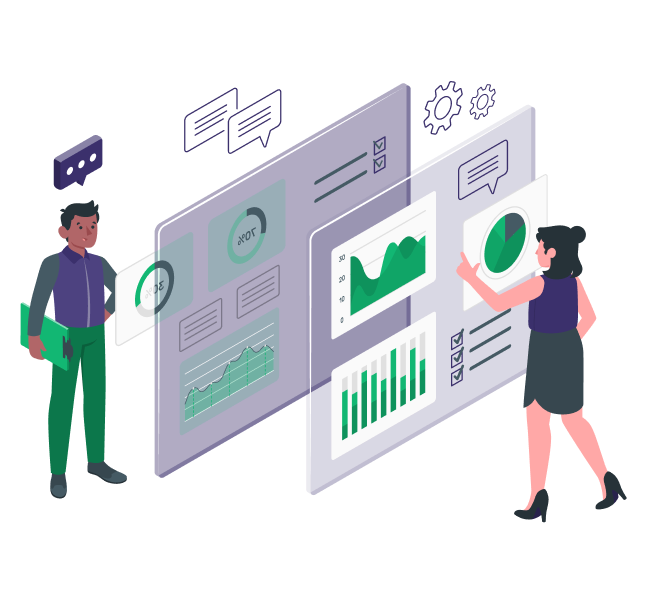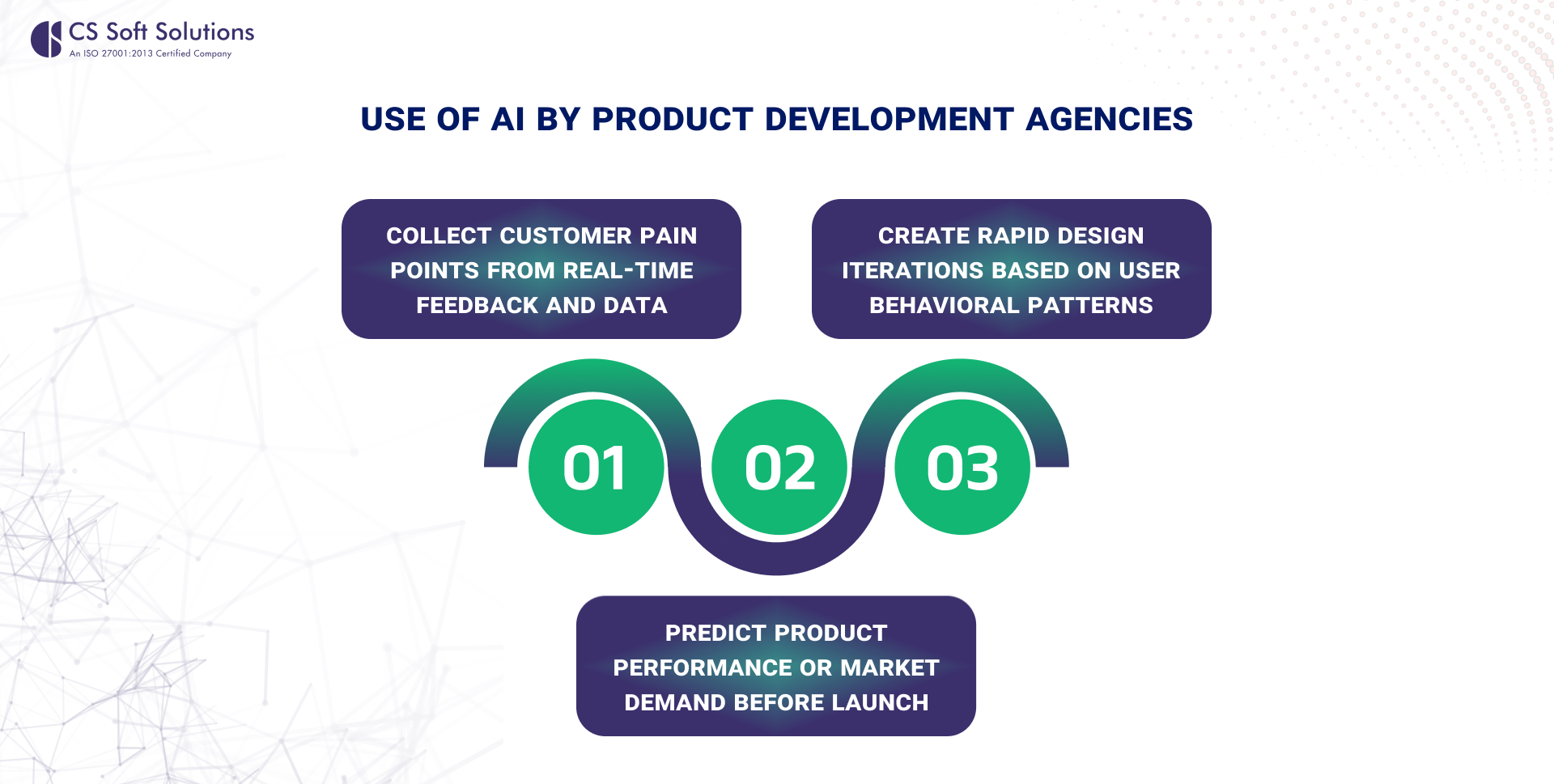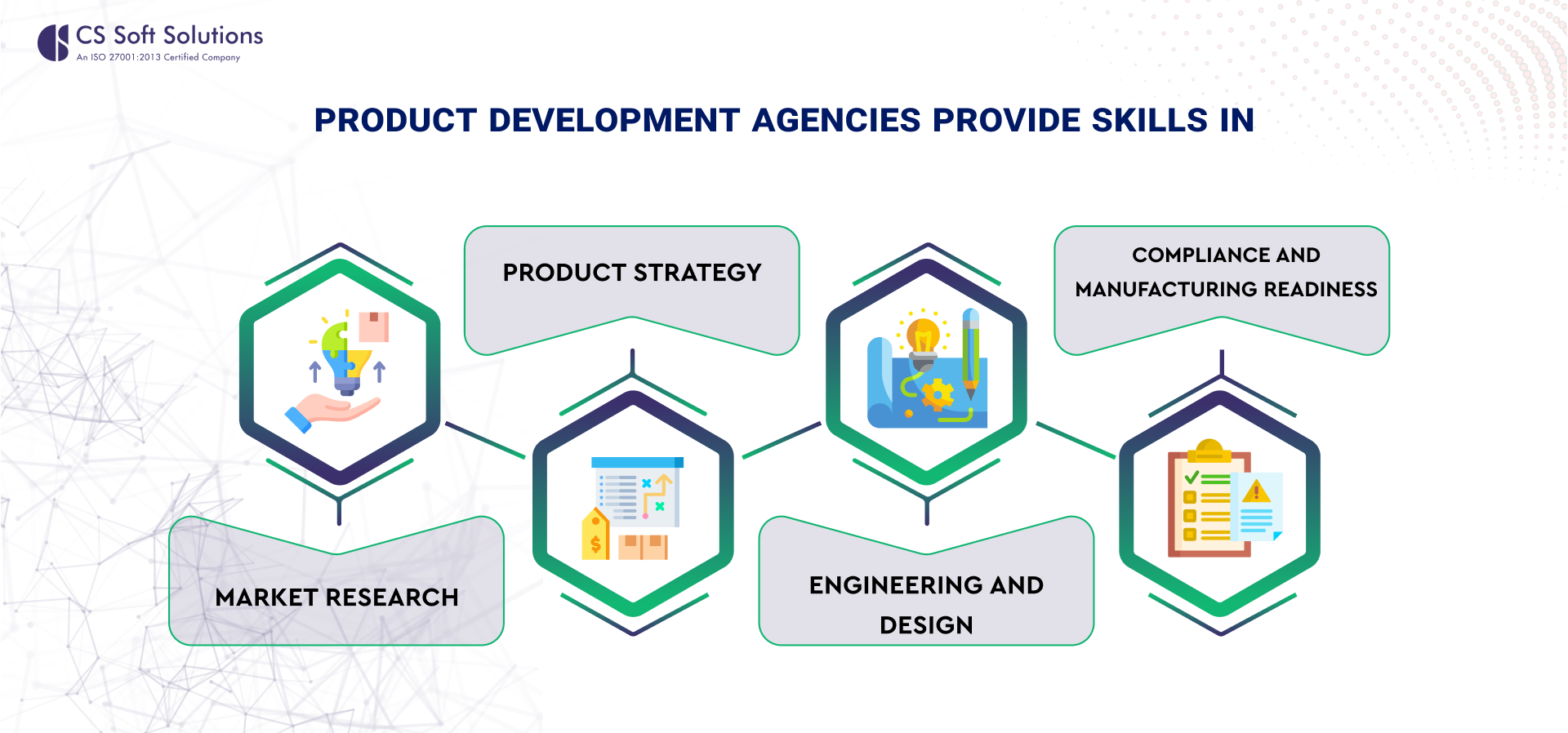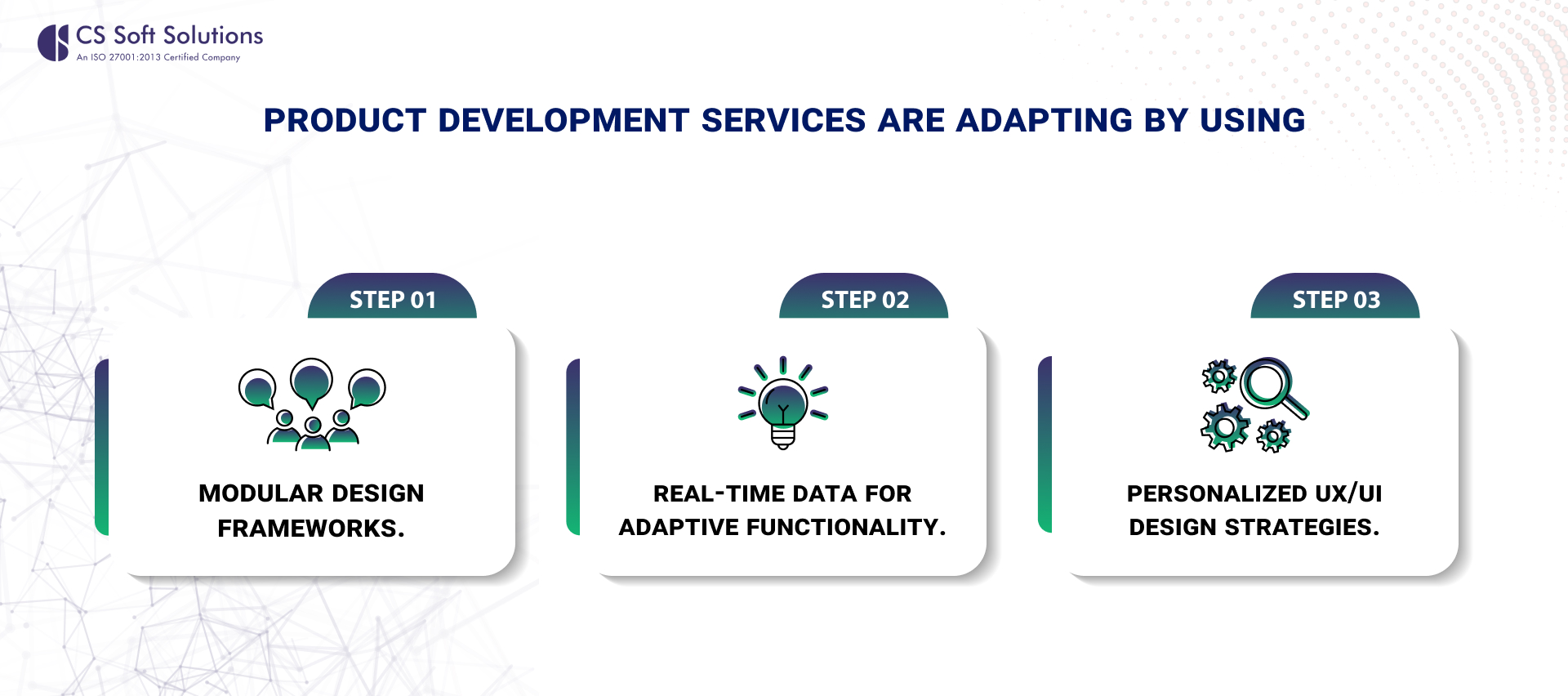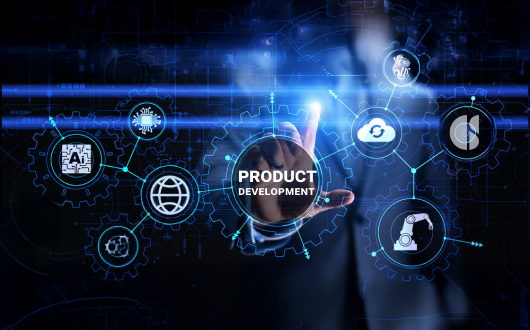
As customers and technology advance, the technology, techniques, and attitudes work their way into product development and product design. Whether it’s a new firm bringing a revolutionary concept to the market or an old established firm bringing your next product behemoth, remaining at the forefront of these developments is vital.
In this post, we’ll explain the top 10 trends shaping product development services this year – and how your business can leverage them for smarter, faster innovation.
AI and Machine Learning Are Driving Smarter Product Choices
AI and ML are no longer the new kids on the block – they’re now essential elements of product development services in the modern era. From user behavior analysis to predictive modeling, AI helps teams make smart choices during ideation, prototyping, and testing.
Product development agencies are increasingly using AI to:
- Collect customer pain points from real-time feedback and data.
- Create rapid design iterations based on user behavioral patterns.
- Predict product performance or market demand before launch.
It enhances the product development and design process, avoids costly guesswork, and speeds up the innovation cycle.
Rapid Prototyping and Agile Iterations Are the New Norm
Those days of long, linear product development timelines are behind us. Today, product development consultancy firms emphasize agile development methodologies and rapid prototyping to test, learn, and iterate faster.
With the application of technologies like 3D printing, digital twins, and cloud-based collaboration platforms, product teams can:
- Create and test working prototypes within a matter of days.
- Gather real-world user insights rapidly.
- Iterate on design and functionality by iterative sprints.
Not only does this approach improve the final product, but it ensures that it is kept equal to customer expectations throughout the development phase.
Cross-Functional Collaboration is Becoming the New Normal
Effective product development is no longer a silos concept. The best-performing product development agencies are adopting cross-functional collaboration models where designers, engineers, marketers, and even end-users work together throughout the product life cycle.
This trend encourages:
- Faster decision-making.
- Narrower communication gaps.
- A more integrated product-market alignment.
With digital tools supporting real-time collaboration among remote teams, this kind of alignment is easier – and more important – than ever.
Human-Centered Design Is Fueling Innovation
Customers today want more than functionality – they want intuitive, personalized, and emotional experiences. That is why human-centered design is in a key position in product design and development.
Product development services are now embracing:
- Long user research and empathy mapping.
- Accessible design practices for inclusivity.
- UX/UI optimization through feedback loops.
This approach puts the user at the center of every single decision, crafting products that not only meet but that build loyalty.
Sustainability and Eco-Sensitive Design Are Now Standard
Sustainability is no longer the trend of the future – it’s the status quo. Customers and regulators are demanding green products and supply chains.
Innovative fare embracing sustainability from day one by:
- Selecting eco-sensitive materials.
- Eliminating waste through modular design and recyclability.
- Optimizing energy usage throughout the product’s lifecycle.
Green design isn’t only good for the environment – it’s a critical driver of building brand trust and long-term profitability.
Outsourcing to Product Development Agencies
The more complex it is to get new products to market, the more businesses are opting to work with a product development agency instead of bringing in-house staff.
Such agencies provide end-to-end skills in:
- Market research
- Product strategy
- Engineering and design
- Compliance and manufacturing readiness
By outsourcing to specialist groups, businesses can reduce overhead, leverage niche skills, and gain time to market faster without compromising quality.
Digital Twins and Virtual Testing Are Transforming Prototyping
Digital twins – virtual replicas of physical products – are transforming the way companies approach testing and validation. Instead of waiting for physical prototypes, groups can test real-world performance in a virtual environment.
This allows for faster iteration, risk evaluation, and performance optimization before production commitment. With this technology increasingly going mainstream, it’s increasingly becoming part of advanced product development services.
Increasing Demand for End-to-End Consulting Services
Many businesses – especially startups and SMEs – need more than simple design or engineering services. They’re seeking product development consulting services with end-to-end consultancy from ideation to commercialization.
These include help with:
- Go-to-market strategies.
- Intellectual property and patent counsel.
- Regulatory compliance and certification.
- Post-launch maintenance and iteration.
This holistic approach reduces risk and achieves the highest return on investment by ensuring product decisions stay aligned with business goals at every stage.
Personalization and Customization Are Driving Differentiation
Mass-market goods are being eroded by personalized solutions. Customers increasingly require products that meet their requirements, either in the form of customizable functions, tailored experiences, or adaptive capabilities.
Product development services are adapting by using
- Modular design frameworks.
- Real-time data for adaptive functionality.
- Personalized UX/UI design strategies.
Personalization not only increases user satisfaction but also differentiates brands in highly competitive markets.
Regulation-First Mindset in Highly Regulated Markets
For highly regulated industries like healthcare, automotive, and fintech, regulatory conformity is a requirement during product development. Product development agencies are now incorporating compliance planning into the early stages of the process.
This regulation-before approach avoids costly delays and makes it easier to travel to market approval, especially in offshore markets with varying standards.
Final Thought
From artificial intelligence to sustainable design, the product development service trends of this year bear witness to a robust move toward intelligent, user-focused, and sustainable innovation. No matter whether you are starting new with product development consulting services or already working with a product development agency like CS Soft Solutions India Pvt. Ltd., being ahead of the curve lies in knowing these trends.
The future of product design and development is agile, data-driven, and quite human-oriented. Those businesses that embrace them will not only bring better products to the market but also build stronger brands in the process.




